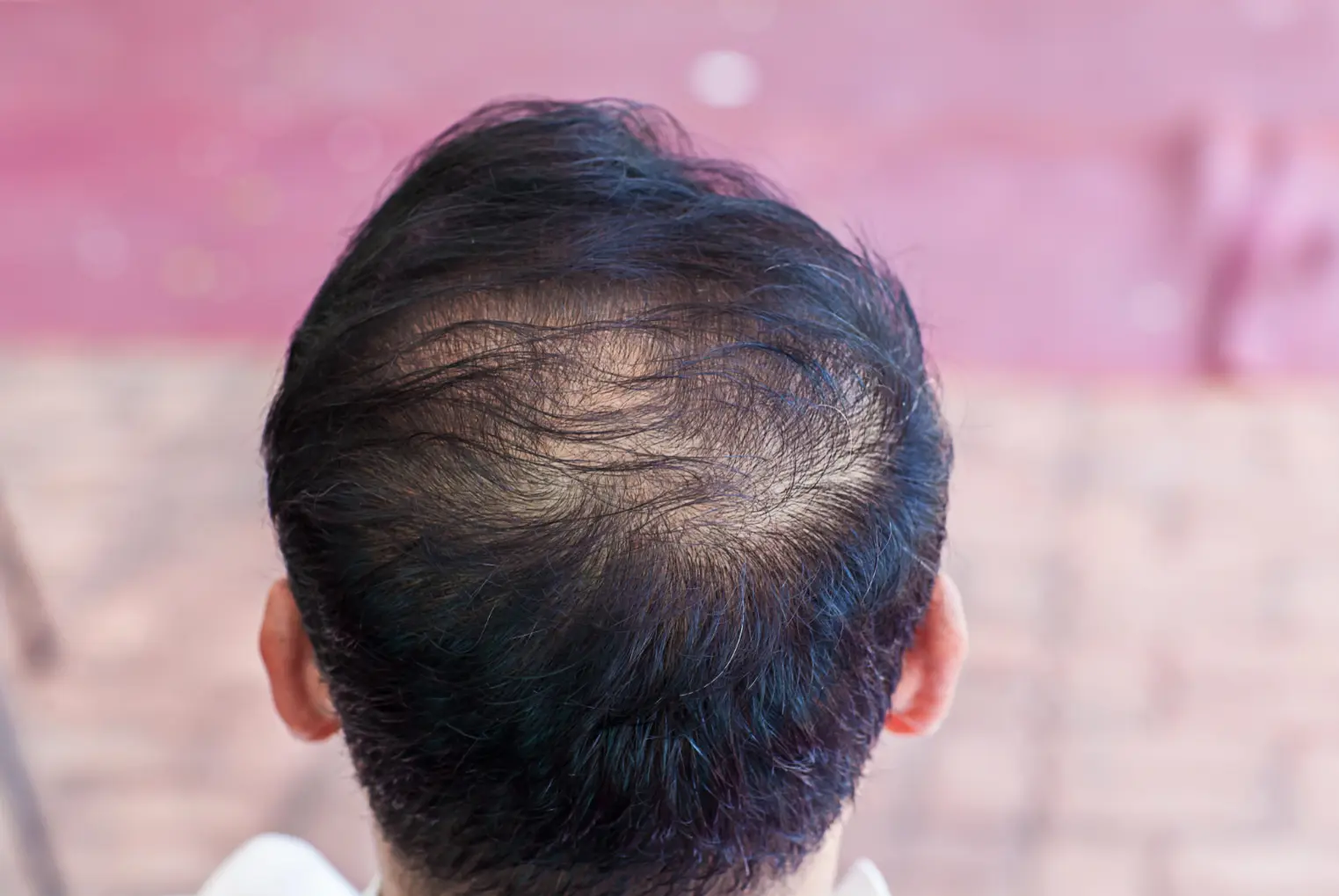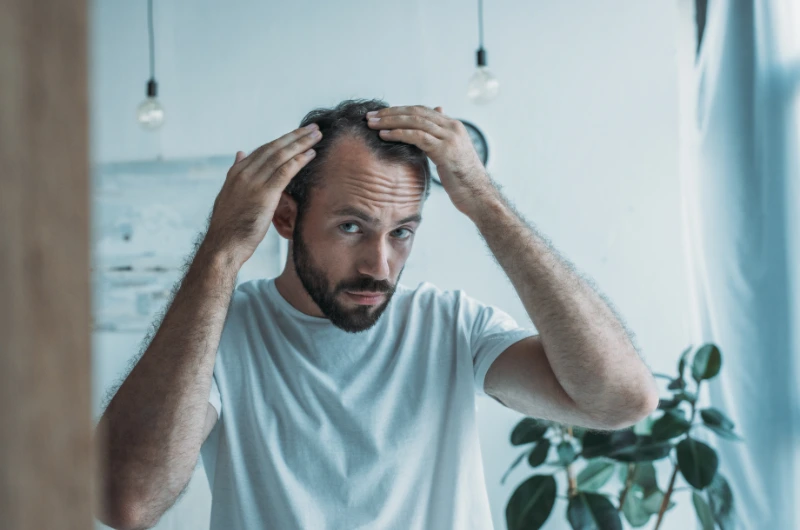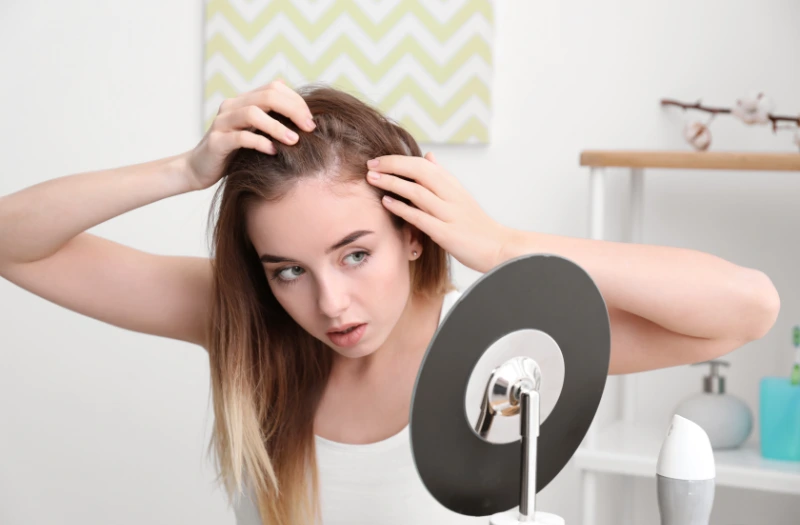
Understanding The Causes of Hair Loss
Hair fall affects many people and can impact both appearance and confidence. They are understanding the causes of hair loss is important to finding the proper treatment. Genetics, hormonal changes, and medical conditions often contribute to hair thinning or baldness. Identifying these causes early can make a big difference in managing and treating the issue. One potential solution for many is hair restoration without surgery, which offers a non-invasive approach to regaining hair. By addressing the root causes of hair fall, individuals can explore effective treatments and restore their hair’s health and volume.
Common Causes of Hair Loss
Understanding what are the causes of hair loss is essential for effectively addressing the issue.
Hormonal Changes and Hair Loss
Hormonal fluctuations are an important contributor to Growth loss. Hormonal changes related to pregnancy, menopause, or thyroid issues are common causes of hair loss in women. These shifts can disrupt the natural growth cycle, leading to thinning or shedding. Similarly, causes of hair loss in males often include hormonal factors, particularly those related to testosterone levels.
Hereditary Hair Loss
Genetics is another major factor. Hereditary hair loss often leads to conditions like female-pattern baldness and male-pattern baldness. In men, this usually presents as a receding line or bald spots on the crown, highlighting what are the causes of hair loss in males. Women might experience diffuse thinning across the scalp, making hereditary hair fall a shared concern across genders.
Hair Thinning and Significant Permanent Baldness
ongoing hair thinning can lead into significant permanent baldness if not addressed early. This is particularly true for those with a family history of hereditary hair fall, including causes of hair loss in males. Recognizing the hair thinning and loss causes early allows for timely action.
Baldness Due to Specific Conditions
Some individuals experience baldness linked explicitly to causes of female hair loss baldness. These can include issues in the body’s defense system, stress, or nutrient deficiencies, especially affecting women, leading to fall that can become permanent without treatment. Similarly, causes of hair fall in males may also involve specific health conditions that necessitate targeted treatment.
Hair loss due to stress
Stress can significantly affect the health of your hair. When you’re stressed, it can throw off your hair’s natural growth cycle, leading to noticeable thinning or even bald spots. The positive aspect is that this kind of loss is usually not permanent. By managing stress, you can help your growth stay strong and reduce the effects of stress.

Causes of Sudden Hair Loss

Sudden hair loss can be alarming, and several factors might be responsible. It includes stress, significant medical conditions, and hormonal changes. For some, sudden loss of hair causes may be related to an autoimmune response, where the immune system mistakenly attacks follicles, leading to patchy hair fall.
Age also plays a role in health, with hair loss age often affecting individuals as they grow older. Another concern is whether the amount of growth shed daily is normal.
Lose hair due to weight loss is another common issue. Rapid weight loss can stress the body, leading to increased shedding. Addressing these triggers, especially as age increases, can help manage and prevent further fall.
What Are the Medical Conditions and Deficiencies Leading to Hair Loss
Various hair loss conditions and hair loss diseases can lead to thinning or baldness. Alopecia areata is a condition, where the immune system attacks hair follicles, causing patchy hair loss. Another condition, frontal fibrosing alopecia, often causes of growth loss in women, leading to a receding hairline.
What vitamin deficiency causes hair loss?
Nutritional deficiencies are another significant factor. What vitamin deficiency causes hair loss? Deficiencies in vitamins like D and iron can weaken growth and cause increased shedding. Addressing these hair loss deficiencies through diet or supplements can promote healthier hair.
Medical conditions like diabetes and thyroid disorders can also contribute to growth loss. Can diabetes cause hair loss? Yes, it can, as diabetes affects circulation, impacting growth.
External Factors that Causes Hair Loss

Several external factors Cause hair loss. Frequent curling irons and harsh styles can damage over time, leading to breakage and thinning. Scalp infections are another concern, as they can damage the follicles, making it harder for hair to grow back healthy.
External factors can significantly impact your hair health. Everyday elements like environmental factors can weaken your growth over time, leading to hair loss. Additionally, certain hair loss medications and drug treatments can unintentionally cause your growth to thin or fall out. Being aware of these external influences allows you to proactively protect your hair and keep it healthy.

How I Stop My Hair Loss: Tips for Prevention
Stopping hair fall requires a proactive approach. Here’s what worked for me to stop my hair loss:
- Protect Your Scalp from Sun Exposure: Sun protection is essential to prevent damage to your scalp and hair.
- Avoid Tight Hairstyles: Avoid tight hairstyles that pull on the hair, which can cause further thinning.
- Consider Non-Surgical Hair Restoration: Consider hair restoration without surgery as a preventive measure. This non-invasive approach can help stimulate hair growth and prevent further loss.
- Know How to Stop Hair Loss Early: Knowing how to stop hair loss early can also help you maintain a receding hairline and prevent thinning hair.
FAQs
Here are some responses to frequently asked questions about growth loss:
Does creatine cause hair loss?
While creatine is widely used for muscle building, limited evidence suggests it directly causes hair fall. Some believe it may affect hormones, but more research is needed to confirm any solid connection.
Does lack of sleep cause hair loss?
A lack of sleep can significantly stress the body, which lead to increased hair shedding. When your body is under stress, it can disrupt the natural hair growth cycle, resulting in more noticeable loss.
Can lack of vitamin D cause hair loss?
Vitamin D plays a vital role in growth health, a deficiency in this nutrient can contribute to thinning hair. Ensuring adequate vitamin D levels is important for maintaining strong and healthy growth.
Does stress cause hair loss?
Yes, stress can have a major impact on your hair. It disrupts the normal hair growth cycle, causing more hairs to enter the shedding phase.
Does dandruff cause hair loss?
While dandruff doesn’t directly cause hair loss, the itching and scratching associated with it can damage the follicles.
Which vitamin deficiency causes hair loss?
Hair loss deficiency can be linked to several vitamins. vitamin D, B12, and iron Deficiencies is particularly common and can contribute to hair loss.
What is a lot of hair loss?
It’s typical to lose around 50-100 hairs each day. However, if you notice more significant shedding, it could indicate an underlying issue. If you’re concerned, it may be worth consulting a specialist to understand the cause.

Conclusion

Understanding the causes of hair fall is a key to finding the best solutions. Whether due to medical conditions, deficiencies, or external factors, addressing these causes can help manage and prevent loss. Consider exploring hair restoration without surgery at Spade Skin Care for a non-invasive option for regrowth. Consulting with a specialist at Spade Skin Care can help you determine the best course of action for your growth health


